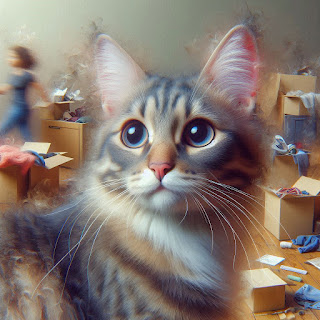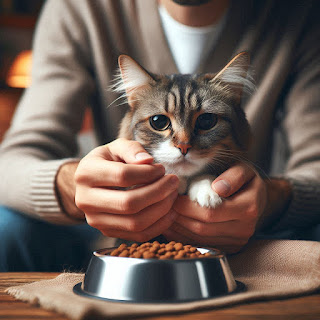Help! My Cat Stopped Eating: Causes, Solutions & How to Get Them Purring Again
If you've noticed that your cat has suddenly stopped eating, you’re probably concerned, and rightfully so! A change in appetite can signal a variety of things, from simple pickiness to more serious health concerns. Let's dive into the potential reasons your feline friend might be off their food, and how you can help them get back to their usual, happy selves.
Why Do Cats Stop Eating?
Stress and Anxiety
Cats are creatures of habit, and changes in their environment can cause anxiety, leading them to skip meals. If you’ve recently moved, introduced a new pet, or changed their routine, they might just need some time to adjust.Health Issues
Illnesses such as dental problems, infections, or even more serious conditions like kidney disease can cause a loss of appetite in cats. If your kitty’s eating habits don’t improve within a day or two, it’s best to consult with your vet to rule out any health concerns.Diet Changes
Cats can be notoriously picky eaters. If you’ve recently switched their food, they might simply be unimpressed with the new flavors or textures. Try mixing the new food with the old one to ease the transition.Food Bowl Factors
Believe it or not, some cats stop eating because of the food bowl itself! Cats prefer shallow dishes that allow their whiskers to stay clear, as deep bowls can cause discomfort. Also, make sure to keep their dishes clean, as leftover food residue can put them off their meal.
How to Encourage Your Cat to Eat Again
Try Warming Up the Food
Gently warming up your cat’s food can enhance the aroma, making it more appealing. Warm food can bring out flavors and scents that stimulate their appetite.Offer Tasty Treats
Sometimes, cats need a little nudge. Try offering some tasty treats or a bit of tuna juice to entice them. However, don’t overdo it—too many treats can lead to nutritional imbalances.Stick to a Feeding Routine
Cats thrive on consistency. Try feeding your cat at the same times each day, as they may be more likely to eat when they know it’s mealtime. Regular schedules also help you monitor any ongoing changes in their eating habits.Provide a Stress-Free Environment
Ensure their eating space is calm and quiet. Try to eliminate any loud noises or disturbances nearby. Some cats might even benefit from having their food in a separate room, away from other pets.
When to See a Vet
If your cat hasn’t eaten in over 24 hours, it’s time to consult a veterinarian. A prolonged lack of appetite can lead to further health issues, including liver problems, so it’s crucial to address this quickly.
Keep Your Kitty Happy and Healthy
By understanding the reasons behind your cat’s sudden loss of appetite, you can help them get back to their usual purring selves in no time. Remember, a healthy cat is a happy cat, and with a little care and attention, you’ll have your furry friend munching away again soon.
Your cat’s health and happiness are always worth the extra effort. If you’re ever in doubt, don’t hesitate to reach out to your vet for guidance. And for more tips on cat care and nutrition, keep exploring CatnadoCat.com. Your feline friends deserve the best!


.png)









